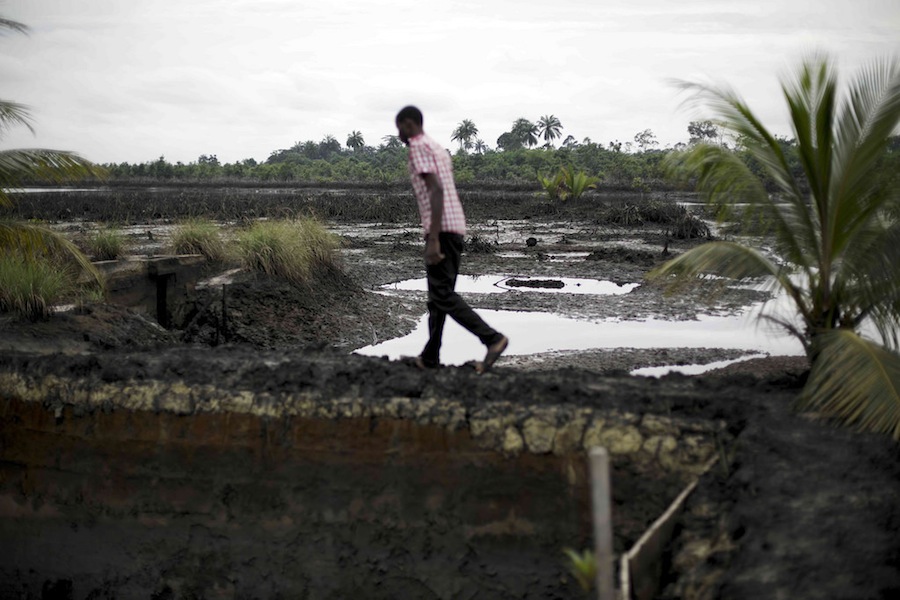By: Nabila F. Qureshi
For thirteen days, a frail old man wrapped in homespun cotton captured widespread media and public attention across India. Channelling the anger and frustration of Indians over a series of poorly handled government corruption scandals, 74-year-old political activist Anna (“Elder Brother”) Hazare staged a hunger strike for nearly two weeks. He refused to end it unless Parliament agreed to pass a bill by 30 August providing for the creation of a powerful, independent anti-corruption agency – the Lokpal – that would possess sweeping powers to investigate all parts of the government from the serving Prime Minister and Supreme Court down to village bureaucrats and officials.
Hazare staged his fast on a platform in Ramlila Maidan, a park in central Delhi, while surrounded by television cameras broadcasting his every move day and night, and watched by a devoted crowd numbering in the tens of thousands. His humble attire, large-framed glasses and Gandhi cap seemed deliberately reminiscent of the man on the enormous poster behind him: Mahatma Gandhi. Hazare’s peaceful campaign to force greater accountability from the government has evoked a kind of nostalgia for what many perceive – correctly or not – as the “golden age” of state responsibility during Gandhi and Jawaharlal Nehru’s time.
In clumsy attempts to respond to the activist, Prime Minister Manmohan Singh and his government initially tried to suppress Hazare’s efforts through imprisonment, but this only guaranteed publicity while garnering more sympathy for him and his cause. The Prime Minister then tried the alternate route of compromise, proposing a Lokpal of his own, but found that Hazare adamantly refused to accept a bill whose terms he deemed too weak. Ultimately, however, by 28 August both sides retreated somewhat from their respective positions when Hazare accepted parliament’s non-binding support for portions of his anti-graft proposal.
Anna Hazare’s ability to tap into the collective rage of the Indian population has been fueled by a deep sense of dissatisfaction with decades of pervasive government corruption. Ranked 87th in the world on Transparency International’s 2010 Corruption Index, India has long been plagued by bribery, nepotism, the criminalization of its politics, and complex networks of patron-client relations at every level of government. A 2005 survey by Transparency International India found that the police, lower courts, and land administration constituted the most corrupt government agencies in the nation. They were closely followed by government hospitals and public electricity corporations.
What served as the impetus for Hazare’s strike, however, was a string of scandals revealed to the public in more recent months. Among them was a bribery scam involving a minister awarding several telecoms licenses for a fraction of their real value to firms with no experience in the industry. Auditors estimated that the state consequently may have lost up to $39 billion in revenue, equivalent to the Indian defence budget. The government’s failure to effectively address these scandals fostered an unflattering image of irresponsibility, perhaps even apathy, toward what most Indian citizens consider to be inexcusable transgressions upon public funding and trust. The state’s lack of adequate response to its own mismanagement undoubtedly lent legitimacy to Hazare’s cause while increasing pressure on Manmohan Singh to support the bill.
Criticism of Hazare
“Parliament has spoken,” Prime Minister Singh said to the Indian news media after the chamber passed the resolution endorsing Hazare’s key demands. “The will of Parliament is the will of the people.”
Critics have questioned the truth of this claim, however. Few deny that Hazare’s goal to mitigate corruption is noble, nor do they deny the corrosive effect corruption has had on democratic robustness and socio-economic development in India. What critics have found deeply troubling, rather, are the implications that Hazare’s campaign may have for procedural democracy in India.
The late B. R. Ambedkar, chief drafter of the Indian constitution, warned of the dangers of “Gandhi-style fasts” to force particular outcomes from a government. Hazare’s hunger strike, critics contend, was essentially a form of blackmail, an “imposition of [his] will on a democratic government.” Gandhi’s fasts may have been justified against British imperialists, but is Hazare’s hunger strike justified against elected leaders?
It may also be contentious, from an empirical standpoint, to label Hazare’s success as “the will of the people.” Delhi’s population exceeds 10-million, yet at their height the crowds gathered at Ramlila Maidan never grew beyond 50,000. Contrast this with the number of demonstrators in Calcutta who marched in May 1998 to protest the Pokhran nuclear blasts. The crowd was 400,000 strong, yet no one took their stance against nuclear weapons to be representative of the entire nation. Today, however, protesters and the media alike have loudly proclaimed that “Anna is India, India is Anna.” Cult-like undertones aside, the doubtfulness of claiming a minority of street protesters to be representative of all Indians has not gone unnoticed by those more wary of Hazare’s methods.
Hazare’s ability to force constitutional change through his hunger strike has raised concerns that it will set a precedent for others – with potentially less desirable goals – to follow. Low-caste Dalits, for example, have expressed their fear that some may try to attack the controversial constitutional provisions that reserve jobs and other particular benefits for members of the lowest castes.
Others take issue with the anti-graft proposal itself, calling it deeply flawed. There are already anti-corruption bureaucrats in the nation, and they have not managed to mitigate corruption in Indian government. In order for the Lokpal to successfully fulfill its mandate, it will at the very least require an incentive structure strong enough to prevent its bureaucrats from acting dishonestly. For example, instead of allocating clearly defined jurisdictions to civil servants over which they possess monopoly control, the government could award officials competing jurisdictions so that a client who was served poorly could simply go to another official. Bureaucrats’ pay could also depend in part on how well they are deemed to have served their clients. At the same time, the Lokpal officials themselves would need to be subject to intensive monitoring and auditing of their behaviour. As historian Ramachandra Guha argues, “a nation’s problems cannot be solved by a Super-Cop… even (or perhaps especially) if he be assisted (as the legislation envisages) by thousands of busybody and themselves corruptible inspectors.”
Positive implications for India
The methods employed by Hazare to instigate change have aroused debate, as have the possible consequences of the passage of his Lokpal bill. It is undeniable, however, that the Indian citizenry have delivered a sound jolt to a government that arguably has not done enough to tackle systemic corruption. However controversial Hazare’s methods may be, they were at the very least peaceful even as his campaign lit the metaphorical fire beneath Parliament to take corruption more seriously.
Though Indian citizens often feel disenchanted with their leaders and their agendas, many are resigned to the idea that corrupt practices in politics are too deeply entrenched to change. Anna Hazare has managed to draw support from diverse groups of Indians, however. In addition to engaging the lower classes, he has captured the enthusiasm of middle-class professionals and college students – a group generally perceived to be politically apathetic. That they have come to believe in their collective agency to incite change through channels beyond the ballot is an important marker of democratic robustness. Whether their active engagement can be sustained, however, remains to be seen.
At its roots, many would argue that democracy is about the popular mandate, even if the popular mandate does not endorse the most effective routes for reform. An empirical assessment of the proportion of citizens physically protesting on the streets should not necessarily be the only way – or the best way – to measure democratic will. As the people’s right to expression is a fundamental tenet of democracy, so is their right to remind an otherwise disconnected legislature of their duty to serve the purposes for which they were elected in the first place.
The legitimacy of the hunger strike as a democratic tool for change remains up for debate, but there is little doubt that domestic change is needed. Moreover, domestic change can have important international implications. As the dominant state in South Asia, India retains a key position – politically, economically, and geographically – for overseeing security in the region. With numerous sensitive states sharing its borders, including Pakistan, China, and Myanmar, it is important for international security purposes that India maintain internal stability. NATO is interested in cooperating with India to combat piracy, cyber security threats, and terrorism; but the process will be hampered if the state continues to tolerate systemic corruption. By strengthening its political institutions India can open up important channels for dialogue not only with its own citizens, but with other states and organizations on how best to facilitate regional security.
Disclaimer: Any views or opinions expressed in this article are solely those of the author and do not necessarily represent those of the NATO Council of Canada.



